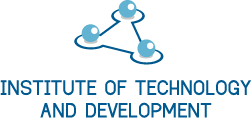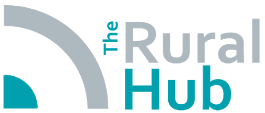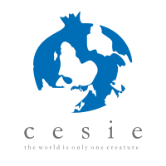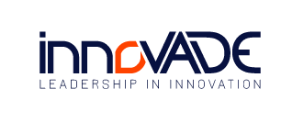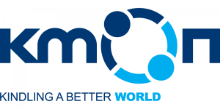- Home
- ABOUT
-
Project Overview
The iWell project focuses on empowering primary school students, aged 6 – 12, to lead a healthy online life and boost their social well-being. Better levels of health are pivotal to reach well-being and happiness, as there is scientific evidence supporting that healthier populations tend to live longer and have a better rate of development (WHO, 2015).
With an emphasis on the health and social well-being of students, the project pays attention on the development of their health literacy skills and the creation of supportive environments to enable them to control the determinants of their health and “improve their health”.
Nowadays, students’ well-being in European schools has become a challenge for numerous teachers to confront, partly due to the needs of the new digital world. A gap that directly arises from this is to develop effective tools for students to have a healthy online life (JRC, 2020). Specifically, the European Commission pays attention to the online safety and digital wellbeing of young people. According to the Digital Agenda for Europe, actions and policies of the EU should focus on maximising the benefits that the digital era can yield by 2020. Significantly, all educators and school leaders should acquire the necessary skills to teach their students to benefit the most of this great potential that is provided to them (Eurydice, 2018) and try to enhance their health and digital literacy skills. However, there is substantial research evidence, which suggests that young people do not have the appropriate skills that a person needs in the new digital world (European Commission, 2015). Any form of misuse of the internet could jeopardise the well-being of students, as well as their success at school (OECD, 2017). In addition, according to the PIAAC survey, there is an alarming need to develop the life skills of young people to increase their well-being.
At present, learning about the digital world is a process that takes place among peers and mainly concentrates on entertainment. Scientific data indicates that young people preferred to use the internet for online games and to visit social networking websites. A prevalent concern is expressed among the EU member states with regards to the use of the internet and the children’s online safety and digital wellbeing. Specifically, research indicated that the inappropriate use of internet resulted in behavioural changes of young people, such as the increase of solitude and the need of avoiding other people’s company to stay alone in order to surf the internet (Eurostat, 2015). Furthermore, many young people were unable to handle cases of being exposed to inappropriate online content that resulted in stress and/or aggression.
-
Objectives
iWell project will put emphasis on:
- Supporting and building the capacity of educators in becoming “active health agents”, to promote the health literacy and social well-being of their students through a bespoke curriculum and innovative teaching practices.
- Enhancing the digital and life skills (decision making, social skills and self-confidence) of primary school students, paying emphasis on maintaining a healthy balance of digital media to use through the development of innovative material (e.g. Mini health literacy games and Training material).
- Facilitating the teaching process to develop health literacy and critical thinking skills of students for their online safety and to maximize their learning opportunities at school through the development of gamified resources, training material and a MOOC.
- Providing European educators with new approaches, ICTs methodologies and research-based evidence to foster social integration and integrate new tools into teaching activities through the development of a Toolkit with Policy & Practice Recommendations.
-
Outputs
IO1: Library of Health Comic Strips
In Supporting and building the capacity of educators in becoming “active health agents” to promote the health literacy and social well-being of their students, a suite of comics will be developed that is anticipated to support teachers to empower primary school students, aged 6 – 12, to lead a healthy online life and boost their social well-being. The narrative of the comic strips is adapted to ensure that age-appropriate content is presented and approved by health professionals before the implementation with students.IO2: Curriculum and Training Material for Educators
iWell curriculum and innovative teaching practices give the opportunity to the teachers to explore ways of empowering students to lead a healthy online life by mediating to help them use their life skills practically to live in the new digital world.IO3: Health Literacy Mini Games
The Mini Games promoting health literacy target primary school students who have to make decisions to experience a simulation of a real-life scenario related to addiction in using computers, cyberbullying, online harmful situations and other possible real-life situations they encounter. During these scenarios, primary school students, are required to put in practice some of their life skills to overcome obstacles and handle real-life situations. Scenarios form the learning process of the gamified environment and Storyboards accompany the content of the scenarios and complete the environment with attractive illustrations and images.IO4: Teacher Professional Development MOOC
The project facilitates the teaching process to develop health literacy and critical thinking skills of students for their online safety and to maximise their learning opportunities at school through the development of gamified resources, training material and a MOOC.IO5: Health Literacy Toolkit with Policy & Practice Recommendations
The project provides European educators with new approaches, ICTs methodologies and research-based evidence to foster social integration and integrate new tools into teaching activities through the development of a Toolkit with Policy & Practice Recommendations. -
Methodology
iWell project consortium makes use of a participatory method, bottom-up approach in designing the project outputs, in order to ensure the development of quality and relevant intellectual outputs and activities. The project proposes a participatory learning approach to promote health literacy and digital wellbeing and partners work with local stakeholders to ensure that the development of all intellectual outputs can be traced back to needs that are time and place-specific.
In addition, skills-based health education approach is employed as an effective mean of changing health behaviours, with this change being sustainable (Schools & Health Organisation, 2018). The approach is relatively new; however, it is widely applicable and increasingly employed by a wide audience.
-
Partners
![]() Details
DetailsINSTITUTE OF TECHNOLOGY AND DEVELOPMENT FOUNDATION, BULGARIA
The Institute of Technology and Development Foundation is a non-profit, non-governmental organization motivated by the challenge to support the development of innovative ideas and technology transfer.
ITD was established as a spin-off of the Centre of IST, Sofia University “St. Kliment Ohridski” and aims at supporting national and international governmental, non-governmental and industrial organizations for applying policies and strategies related to new technologies. It is designed to strengthen the academic-industry linkages and contribute to rising the innovation and entrepreneurial culture.
ITD is engaged in training and educational activities supporting the applications of new technologies in education, in community development, and incorporate information systems, focusing on the methodological research and dissemination of the best practices related to ICTs.
The members of the ITD have been involved in more than 80 international R&D, training and industrial projects. ITD has build capacity in development successful models covering all phases of the project life-cycle, including successful experience in building public-private partnership, training, management and financing of projects under EU Programmes, the Structural Funds, etc.
Website www.itd-bg.eu
![]() Details
DetailsCARDET – CENTRE FOR ADVANCEMENT OF RESEARCH AND DEVELOPMENT IN EDUCATIONAL TECHNOLOGY, CYPRUS
CARDET is one of the leading research and development centres in the Mediterranean region with global expertise in project design and implementation, capacity building, health education, digital literacy, school education and e-learning. It is independently affiliated with universities and institutions from around the world, such as the Yale University, the University of Nicosia and the International Council of Educational Media.
CARDET has completed numerous projects relating to school education, health literacy, adult learning, literacies, digital tools, eLearning, and social integration of marginalised groups. It brings together an international team of experts with decades of global expertise in designing, implementing and evaluating international projects. The team has successfully participated in more than 200 projects in more than 40 countries, several of which were supported by the European Commission, the United Nations Development Program, Microsoft, The Commonwealth of Learning, international agencies and governments around the world. One of our core strengths is our ability to carefully plan, implement, execute and evaluate projects in various contexts.
CARDET follows a systemic and systematic process in thoroughly planning and executing projects. CARDET is ISO 9001 certified for quality in management, research, and education services.
Website www.cardet.org
![]() Details
DetailsTHE RURAL HUB CLG, IRELAND
The Rural Hub was set up as an association by a group of education, training and rural development professionals as a response to the impact of the economic crisis on small rural villages and towns in Ireland. Since it was first established in 2012, The Rural Hub has been providing a wide range of training and capacity development programmes to local residents and community groups. We specialise in the area of community development and have developed a number of local initiatives to support the social inclusion of disadvantaged rural youth, migrant communities and isolated older residents. We work with these groups, using creative approaches and the testing of digital media resources to support greater social cohesion among local communities in County Cavan. We have a developed network of county-wide stakeholders who support our work on a thematic basis. Through our community-based office, we deliver informal adult and youth education programmes through our Social Mornings and Educational Afternoons programmes; and through our ‘youth into digital media’ programmes we run in our Digital Media Zone (DMZ) in Virginia, Cavan.
Website www.theruralhub.ie
![]() Details
DetailsCESIE, ITALY
CESIE is a European Centre of Studies and Initiatives based in Palermo, Sicily. It was established in 2001, inspired by the work and theories of the sociologist, activist and educator Danilo Dolci (1924-1997).
Our mission is to promote educational innovation, participation and growth.
CESIE is structured in 6 main units:
- Higher Education and Research: fostering progress, sustainable and responsible research and innovation in Higher Education and Research Systems;
- Rights and Justice: promoting equality, protecting the rights of people, preventing and developing responses to violence and discrimination;
- Adult: upgrading lifelong learning in adult education, boosting innovative practices and developing key competences for adults;
- Migration: developing effective and inclusive approaches for asylum seekers, refugees, and migrants;
- School: improving quality and efficiency in school education;
- Youth: enhancing active citizenship, training, education, and mobility of young people.
CESIE staff is composed of 50 individuals with a wide range of qualifications, skills and professional profiles, united by a deep sharing of ideals that lead our activities. At the same time, we rely on about 150 external experts that collaborate for specific activities, and 100 interns and volunteers who join us every year.
CESIE’s slogan “the world is only one creature” expresses the philosophy for which the organization works: inclusion and equity for all.
Website www.cesie.org
![]() Details
DetailsINNOVADE LI LTD., CYPRUS
INNOVADE is a social innovation organisation with extensive expertise in designing and implementing projects and solutions in diverse settings around the globe. The team has decades of expertise in implementing over 100 projects in more than 30 countries. Areas of engagement have a primary focus on bringing about positive change in organizations and social systems. Expertise includes School Education, Vocational Training, Innovation, Social Entrepreneurship, Capacity building and Information and Communications Technology.
Website www.innovade.eu
![]() Details
DetailsKENTRO MERIMNAS OIKOGENEIAS KAI PAIDIOU, GREECE
KMOP is a non-profit organisation, founded in 1977, being thus one of the oldest Greek NGOs with 40 years of accumulated experience in supporting disadvantaged groups. KMOP is committed to kindling a better world. That is a world that rests on a foundation of sustainable development, social growth, and individual well-being.
We work with the public and private sectors, as well as with civil society to drive solution-oriented, knowledge-based interventions that are crucial to fostering resilience and making the world a better place to live.
KMOP’s main areas of expertise include social welfare and health, employability and human rights protection, scientific research and development of know-how in social policy and social protection issues.
Apart from direct provision of services through decentralised community based facilities, KMOP is also actively involved in both national and international projects, addressing social issues particularly focusing on low-skilled youth and long term unemployed, victims of violence and trafficking, disabled, elderly, migrants and minorities.
Website www.kmop.gr

This project has been funded with support from the European Commission. This website and all its contents reflect the views only of the author, and the Commission cannot be held responsible for any use which may be made of the information contained therein.
[Project Number: 2020-1-BG01-KA201-079041]
Privacy Policy
